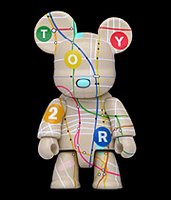...after immediately injesting roughly half of the required reading, upon the three basic conceptual paradoxes, and under the definition of Post-Modernism, thereby supporting the (un)philosophical (non)movement of which we speak, the first being "truth", after making some rather (hopefully) clever points and (presumed) relevant reference points, resulting in a very brief introduction to some key individuals, who will neatly fall into a concept that I will state as my own, but under the simultaneously negating and supporting definition of stated first topic, some other long-winded, asshole "intellectual" thought of before I was born, but as far as we are concerned is wholly my concept, and will speed us along to the topic of part 2, hereby acknowledging the tried and true, arguably over-used to the point of banality, "TRINITY", (3 act play, or, more relevantly in the given context, the preferred 5 part essay structure that we are all expected to dutifully adhere to throughout our scholarly careers, which stands in place for one or more of the following reasons, {a.It's pretty damn simple, b.It both forces us to adhere to a sort of collegiate conformity, while challenging us to find our own independent creative voice within a set of rules, c.It saves a lot of time on the grader's part because the 1st paragraph states what you are about to state, the last paragraph states not only what you have just stated at length, but stated prior to that in the 1st paragraph, leaving the points and connections inbetween, which is what counts, and with practice and some intuition, the grader doesn't even have to read to know if it holds water or not}, and by these assumptions the primary may be supplanted by a well thought out title, (like the one you are reading now, provided you don't mind run on sentences and my rapidly developing, almost text-book example of megalomania, of which I'm really trying to work on, honest Injun), and the later can be eliminated out of sheer disgust, being that it is redundant on two, (TWO!), accounts, and completely superfluous, not to mention really doesn't naturally lend itself to "we", the students, getting our "money's worth", out of our collectively structured re-arrangement of ideas that run the gamut from, at worst, plain as the nose on your face, to, at best, genuinely engaging on several levels, and the one we are all shooting for here is CEREBRAL, but on either extreme available to us all equally provided our access to the current virtual representation of a concept of a well outdated form of communication, which is open to all sorts of misinterpretation, due to the limits of our language, which is another socially conceived construct that we all voted on one day to collectively believe in, hence, rendering it "true", and to put the cherry on top of this really, really long sentence of which I have already brought up on two occasions examples of an idea that you have to get through the 1st part of this never-ending stream of crap that I am convinced you have all stopped reading at this point, the virtual representation, blah-blah, of the thing that is only reality because enough of us believe it to be, doesn't exist either, because you are not "reading" text, (although hopefully gleaning the sub-, which supports the short version title to the thing I haven't really begun talking about, STILL, and am currently wrapping up the long, (read; overly-self-indulgent), version, but in fact looking at little colored dots, which due to the aforementioned (non)concept, you have deeply ingrained within you, and therefore the representation of what you are pre-conditioned to (mis)understand, as words are actually agreed upon signifier of "words", (which, consequently by way of Sartre, by establishing in our collectively agreed upon reality, destroys the essence of the thing that we have been trying to think of a really good "word" for), and beyond that, aren't really colored dots, but a whole lotta ones and zeros, which brings up a subset of what we already know by way of it's existence, doesn't exist, not to mention according to Mr. Nausea, destroys the thing that it attempts to define by use of a crude social construct of something that doesn't exist, thus, destroying the only "real" thing in the first place, (i.e. that tree over there that conceptually should have a much broader frame of reference, thereby a more refined personal reality and understanding of, or at least have final say, given it's probable age doubling the combination of the both of us, lending it seniority, by default, but it doesn't "talk", so who cares what that tree thinks, if in fact it does, which get's us close enough to my first point/problem, the idea of truth, reality, and what the hell I just wrote."
Okay, if you made it this far, thanks and stuff for indulging me, prior to most of you even knowing me, which isn't really me but you're own, self-created reality or truth or constant or whatever. Further more this "me", that by contemplating momentarily, have brought into some form of existence, namely, yours, likely has more to do with every thing that you have experienced up to this exact moment, and could arguably be equally influenced by seemingly un-related, meaningless prior events, like if it was raining when you where born or what you had for lunch January 10, 1993, than the "me" that I believe to be "me", which, (and this next bit should be no big shocker, given our "collective" assumed frame of reference, given you actually volunteered to take a course on Post-Modern Theory, which could lead me to any number of assumptions about you a varied as, the idea of your neural transmitters literally bursting into flames is some how comforting, no matter how disturbing that thought may be to everyone you have ever dared speak such an idea aloud to, or, You like to be challenged, and enjoy reading text that has probably been poorly translated, from some other language, by someone who's own native tongue is Swahili or something ridiculous like that, and is pretty heavy shit for someone of your equivalent level of intelligence, that happens to be reading it in the language it was written, and given the already slippery slope we have established was is essential a series of mindless grunts and howls, and because of all this other, individual reality formed by everything you have experienced, (and if I may, and having already alluded to the really unnerving concept of what living in the age of information means on a deeper level, and how this is, right now, already caused you to re-contexturallize, and lots of other 50 cent words you could tack "re-" in front of, and perhaps, just perhaps, has already allowed you to determine an inter-contextuallization, or tear an extant connectedness apart, but ultimately, rendering you in what Sartre refers to as "continually making ourselves who we are", at every moment and with each new idea or experience we have, thereby constantly grasping at what in eternal flux between truth and non-truth, dependent on all this other stuff we've been over, to paraphrase a person who is a literary invention and leader of a fictional terrorist/mind control/religous cult based on the brain being exposed to television waves, Dr. Brian O'Blivion, "the mind precieves what it sees on television as experience, therby, creating experience through it suggestion", or something like that. "Videodrome" look it up.), or finally, you want to impress a pretty girl.
Now, since by all this yammering on, I am going to assume that the ideal has happened, from a journalistic standpoint, being about half of you think this is all complete bullshit and the other half are so convinced that not only what I am stating and presenting and giving example of, is not only true, but has shaken you to the core of your belief system, instantly causing you to place me at near God status, rendering you hopelessly enamored with, (regardless of my sexual identity, yours, or any body else's individual idea of any of it. I DID say TO THE CORE, just keep humoring me for another 1500 words or so. Not
really 1500. Besides you are looking at something that does not exist and by the loose rules that we have tethered to that concept, proves the opposite through it's negation or replacement, thereby creating a seriously big paradox. Anyway, 1500 or 15 they don't exist. So it doesn't make a difference either way.
Oh, almost forgot, 2 cats that fall under that concept of mine that I mentioned, way back in what you are still grappling with as the "Full Title to a 3 part blog entry", which I have, by the way given you what I believe to be true, hopefully causing you to at least wonder if it's true, according to all your personal hub-bub and stuff, and fitting somewhere in there either now or in ten years when you realize you were actually privileged with being in my, again, really pushing the megalomania issue, and even making half-hearted attempts to make you BELIEVE it to be TRUE, or at least self-centered in an above average way, which brings about another "dissonant unity" thing that I'll get through as soon as I finish the other 27 things I've yet to bring together.
Right, both of these individuals, thereby, a multitude of ideas of those "actual" individuals determined by anyone's given point of reference, subject to constant revision, thereby creating even more ideas of that individual depending upon the moment you think about them, (for example, and the sake of simplicity, (I have the gall to have typed that word in the middle of all this), remember how you felt and believed to be true about Jim Morrison when you shoplifter a book of his, er, poetry, when you were, like, 14. Okay, just get that clear. Now think about the Jim Morrison that you have (with any shred of ability to determine the difference between "relevant" media or art, and whiskey-driven dribble vomited forth by a man who managed to become a parody of himself in about 1/4 of the time it took Elvis, which actually, on some level,
is a valid achievement.) come to believe to be real by the hopeful broadening of your little world since you were just barely a teen. These, by any sense of the word truth, should be two COMPLETELY different people, created by you, in your personal reality, that may or may not have anything to do with the actual entity "Jim Morrison".), William Burroughs and Jean-Paul Godard, both made big contributions to the Post-Modern concept of truth, by essentially taking one set of rules, confirming them as real by detsroying them, and then, conceiving of a totally new, more individualistic, set of rules, that aren't by the old rules standards rules at all, feeding back onto itself by confirmation through denying, or getting mad about and writing nasty letters to whatever big-whoop artist journal of the moment was.
I see this as a problem inherent in everyone directly or indirectly involved in the process of creating a new movement or belief or set of rules or anything that ends with -ism. Imagine you are about 50 years old, really involved with your environment, on multiple levels. The thing is, your environment is a 25 foot square room that is occupied by things that you have come to believe as true because that is all you know, for 50 years, one room. Now, one day, someone comes along like Burroughs or Godard, and this know it all finds a door that for your entire life you have never noticed in this room that you are by know, fully convinced you understand fully, or at least really damn well. So, the wise guy that finds the door, here we go with my fancy concept, is an anomaly. He or she not only understands the world that we all currently believe to be true, by our own reasonably similar idea of truth, but can not only find the door to a new "truth", or structure, etc., but that individual falls into the Origin & Oracle category, like the human "entity" equivalent off a four-leafed clover, and already has a pretty firm grasp on the room on the other side of that door, that everyone else, mostly, cannot even begin to comprehend. The end of one world and the beginning of the next. This because we all have our own idea of reality, causes a lot of problems, that tend to not be resolved until someone can live in that new room long enough to help define it, by negating the prior rooms existence.
I'm really close, bear with me. Put that last thing somewhere safe cause you're going to need it next time. Here is the paradox of all of this. Believing something to be true or untrue, not only negates and confirms that this is black and this is white at the same time, and a whole bunch of really smart people have been going back and forth on this for a long time, because according to the old rules a new system can ONLY negate the prior, and if Post-Modern, by putting the Post- in there, confirms the old system, while claiming to only partially negate it, because as good Post-Modernists we all want to pick and choose what we want to keep and re-whatever the hell we want to with, or, dare just leave as nostalgic distraction, (and think about how many people born AFTER 1980 watch "That 70s Show" for the nostalgic distraction of a time that they can have only other conceptions and truths about, informing there own, creating a 1970's that exists in some 12 year old in China. Think about the first time your Grandma tried to wrap her head around Halo or whatever cutting edge game. By her frame of reference she is incapable of arriving at the same truth as you or me or our ideas of each other, which are just as real, because to me, YOU DO NOT EXIST IN REALITY UNTIL I CONJURE YOU OUT OF THIN AIR BY BEGINNING TO THINK ABOUT YOU A SPLIT SECOND BEFORE THE NEXT TIME I DO, intentionally or not. Because "truth" is whatever we want it to be to serve whatever purpose we intend it for, in relation to our understanding of what we want to convey to our momentary belief of our intended audience.
Chew on that for a bit, and then assume that there are all these individual realities being created perpetually, feeding back and into, creating other realities that are further from the "real" thing, because by claiming to confirm or deny anything that we encounter, we prove it by disproving it, creating a whole bunch of really, really big, but, get this, SOMEHOW co-related on some level in the past present or future, paradoxes that create them selves by you thinking. At all.
Now, apply that to everything, sleep tight, and on Monday I'll write a bout paradox. And the best part, in true form and adherence to the rules, no matter how absolutely perfectly comprehensive yet impossible, thus proving Post-Modernism as a "real" thing by using it's own conflicting rules to prove itself, I will begin to tear apart at the familiar structure that took so long to get through because it needed to framed in a reality that no longer exists, but does, because it can't.
Now honestly, one other thing, given the fact that I have been feeding you all this stuff, at what point was I speaking with "my" "true" voice, "my" "self-negating and conflicting" voice, and the voice I made up, just for you, whatever I imagine you to be as you read this, and every conflicting and thereby proving shade of grey inbetween. Because I have been thinking about all this from the exact moment I was informed of the assignment, and I didn't sleep last night, because, knowing what I was about to (un)convince you of being "truth", setting up the frame work of Post-Modernism and in my own way doing a little mini-thesis, have, naturally not only been thinking about what ideas I would present to the world, but also create a new me, based on a me that is by design, intended to (mis)lead or present (un)truths.
But ultimately, I'm just trying to impress some girl.












